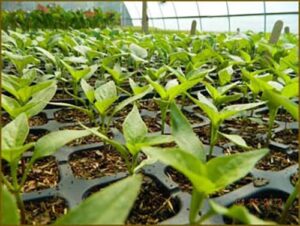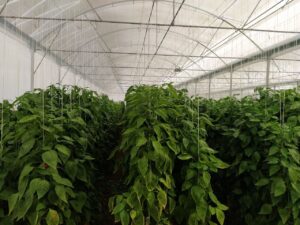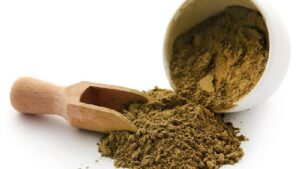Henna
Henna is a shrubby plant up to seven meters high. The leaves of this tree are simple, oval, pointed and 3 cm long and 1 cm wide.The part used for henna is it’s leaves.
In this article we are going to examine the types of henna along with brief explanation of about henna.
One of the most important objects that used to identify and standardise henna is the combination of lovson or Hydroxinphotoquinone, which makes up about 1% of air.
This material is also the source of henna colour. Due to the fact that henna is one of the plants with a considerable amount of tanan, therefore it has the strong astringent properties, for this reason, it is used orally in bloody diarrhea, intestinal and gastric ulcers and as a diuretic.
Considering the different types of henna is used in many parts of the world, including Egypt, India, Iran, Pakistan, Afghanistan, central Europe and America, to dye hair.
Currently many henna products are made and used as hair care and protection in the world.
What are the different kinds of henna?
In the rest of the article we will introduce the types of henna, so stay with us.
In general different kinds of henna are divided into 3 categories: natural henna, black henna and colourless henna.
All types of henna have different purposes.
-
Natural henna
Natural henna is the result of a plant with fragrant white_greenish flowers, which has many medicinal and beautiful cosmetic properties. Henna is one of the first natural dyes discovered, which has been widely used in the pharmaceutical and cosmetic dyeing Industries.This plant is basically a tropical plant and its origin is attributed to the Mediterranean.
As mentioned one of the different types of henna is natural henna, which is considered one of the most widely used and usefull medicinal plants in Iran.
Henna has always been the focus of traditional medicine. in addition, natural henna has been used to prevent and treat some diseases in Egypt and Greece.
In addition, it is recommended to use natural henna leaves along with walnut leaves to relieve headaches. In henna, there is a substance called mucilage, which causes henna to become a paste when it comes into contact with water, and it can be easily used to dye hair.
Natural henna have the red undertone and never turns black and the offered black henna is not natural henna.
Of course by separating the colouring matter from natural henna, colourless henna is created, which is used as a cooling, softener and skin conditioner, and according to experts, it’s properties are also reduced in this process.
Unlike the mentioned cases, a type of henna called Indian henna is sold in the market, which is uniform black or dark brown in colour, and not only does not have the medicinal properties of natural henna,but according to dermatologists and hair experts, what after using henna remains is severely inflamed skin.
In the preparation of Indian henna, chemicals are used instead of natural plants to create the different colour from ordinary henna.
-
Black henna
Another different kinds of henna is black henna.
At the very beginning, it should be said that black henna is one of the natural hair dyes that has been strongly popular today due to its properties for hair.
Black henna is the best type of Indian henna available in the market, which is very suitable for covering grey hair.
Dying hair with henna, in addition to giving the hair its beauty and shine, will strengthen the hair roots and make them stronger and softer.
In the following we will mention some of the benefits of black henna,which is one of the different types of Hannah available in the market.
Profits of black henna
- Having antibacterial and antifungal properties
- Help maintain the balance of the scalp
- Skin moisturizer
- A suitable product for hair nutrition
- Reduce hair loss
- headache treatment
- Help to insomnia
- Has anti-aging properties
- bring down the fever
- Anti-swelling
- Effective in the proper growth of nails
- The best cover for grey hair
Putting Black henna on the hair takes about 5 to 15 minutes. after putting henna on your hair, you should cover your hair with a special hat an wait for an hour.
Also keep in mind that black henna can cause stain on the skin so be careful with that as well.
-
Colourless henna
The last type of henna that we will examine is colourless henna which in this part of the article we will specifically mention the unique properties of colourless henna on skin and hair.
Neutral henna is also called colourless henna, does not create any colour on the skin and hair.
However it has all the benefits of natural henna. Colourless henna is a very good option for people who want to benefit from the medicinal uses of henna and don’t change their hair colour. Henna is a strong and excellent natural softener, and makes the hair soft, shiny and strong.
Colourless henna is a type of henna that has many benefits without colouring the skin and hair.
This can be used as a mask or in other ways for facial skin and hair. Colourless henna compared to red coloured henna does not cause hair and skin colour ;because it is completely obtain from another plant.
Colourless henna contains vitamins and biologically active agents in its structure.
Different kinds of henna have many benefits that in the following, we will introduce some benefits of colourless henna.
- Benefits of colourless henna for skin and hair
- skin rejuvenation
- Whitening and lightening of skin colour
- treatment of acne and pimples
- Anti-inflammatory and wound healing properties
- Treatment of sunburn
- Treatment of inflammation and skin infections
- Collagen formation and anti-aging
- Increase hair growth
- Repairing damaged hair and eliminating fragility in it
What is the best type of henna?
One of the best and top-quality henna is organic henna. As the name suggests, this henna powder is organically grown in a safe environment, packaged, and shipped via a safe route to offer maximum freshness. It is also free from pesticides, chemicals, or any other type of ingredients.






